A Lifechanging Decision
Julia's decision to marry an elderly millionaire was met with disapproval and judgment. As she stood at the altar in her wedding gown, not a single person in the church looked at her with kindness or joy. The priest gazed at her with visible surprise, and Julia herself felt uncertain about why she was about to say "I do." In a hushed tone, the priest asked, "Do you promise to love, honor, support, and share your life with this man, in sickness and in health?" Overwhelmed with nerves, Julia struggled to answer, her eyes fixed on Harold—her groom, 37 years her senior.
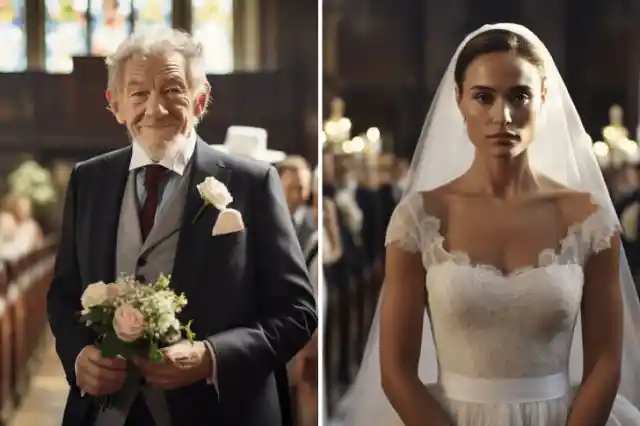
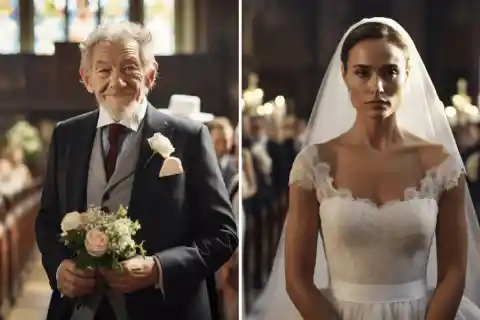
It was a union no one had anticipated. A wedding is supposed to be a celebration, a joyful occasion—but this one was silent, somber, and lacking warmth. No friends or relatives came to share the moment. Julia's closest companions had distanced themselves, while Harold’s family and acquaintances didn’t bother to hide their disdain. Taking a shaky breath, Julia recited her vows, her voice quivering. Beneath her guilt, she clung tightly to the resolve needed to carry out a certain "plan"...
Escaping the ordinary
Just a few weeks earlier, Julia had been living a simple life as an elementary school teacher. While she enjoyed her work and found it fulfilling, the routine left her feeling unfulfilled. Each day blurred into the next, and even nights out with her friends couldn’t shake the emptiness. Most of them were married or raising kids, and Julia couldn’t help but feel like she was being left behind, alone in a world that had moved on without her.


Even so, I truly loved being with the children—there was nothing more rewarding than watching their eyes light up as they grasped new ideas in class. I took pride in what I did, yet deep down, I yearned for something more. I dreamed of a life filled with travel, shared with a partner and family, of indulging in comfort and luxury, and experiencing an adventure that broke away from my usual routine.
An unexpected proposal
But Julia's romantic life had been at a standstill for quite some time—she didn’t even have anyone she was remotely interested in. It seemed unlikely that anything would ever disrupt the monotony of her daily routine. That’s why what happened just a few weeks later felt like a complete shock. One afternoon, as the children were still playing in the schoolyard after class, 71-year-old billionaire Harold suddenly showed up, dropped to one knee, and proposed to her.


Several nearby parents watched the scene unfold, their eyes wide with disbelief. But the biggest shock came when Julia responded with a swift and unexpected “Yes.” Rather than hesitating or showing confusion, she accepted the proposal without a second thought—and that moment spread through the town like wildfire.
A Feeling and a Proposal
Even before Harold, dressed sharply in a gleaming three-piece suit, knelt before her, Julia had a sinking feeling. He was elderly and frail, clearly not someone with much time left. She was well aware of his condition. Yet, she didn’t turn him down. In fact, deep down—long before the proposal—Julia had a thought she couldn’t ignore: “This might be an opportunity I can use.”
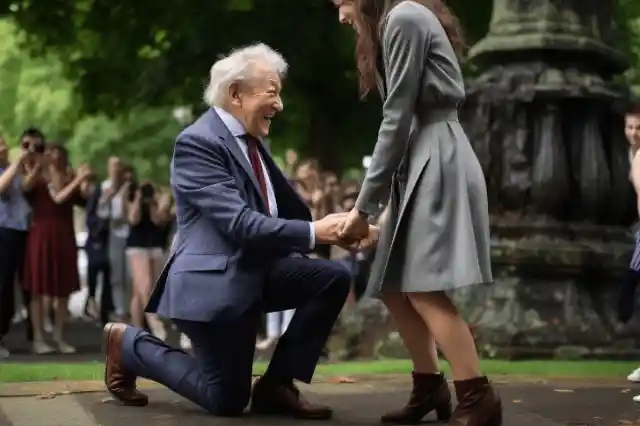
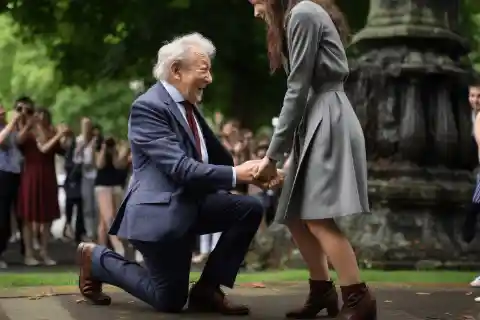
More than anything, it was Harold’s immense wealth that drew her in. Ignoring the shocked stares from those around her, Julia smiled warmly and wrapped her arms around him. Without hesitation, she accepted the extravagant diamond ring he offered.
Gossip and fear
The day Harold proposed, Julia felt more dazed than thrilled. As she stared at the massive diamond on her finger, she kept wondering, “Did I really say yes?” The townspeople wasted no time in reacting. Her phone wouldn’t stop ringing, and messages from friends poured in—mostly harsh remarks like, “You’re clearly just chasing that old man’s money,” and “There’s no way this is real love.”
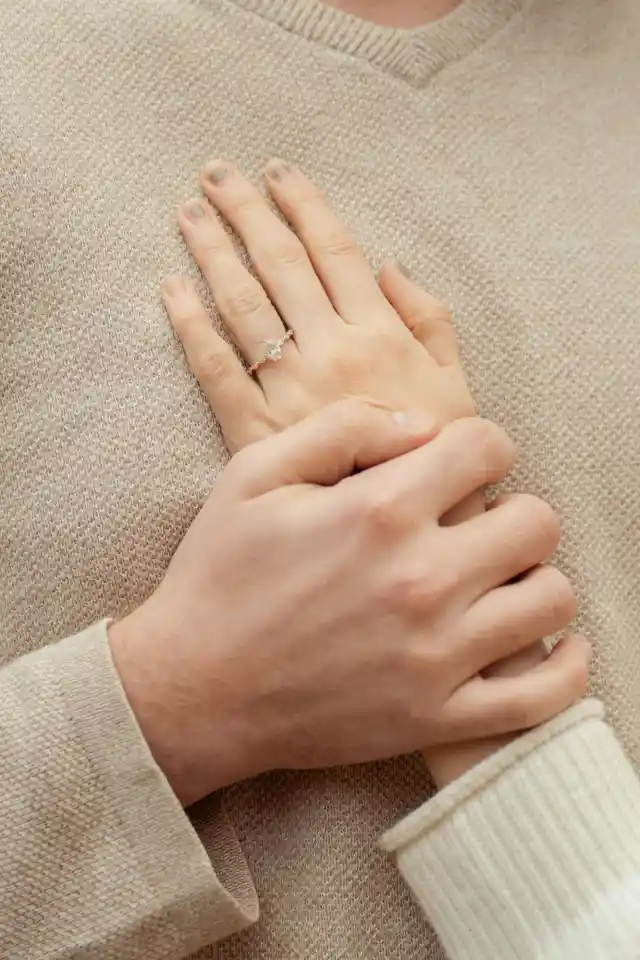
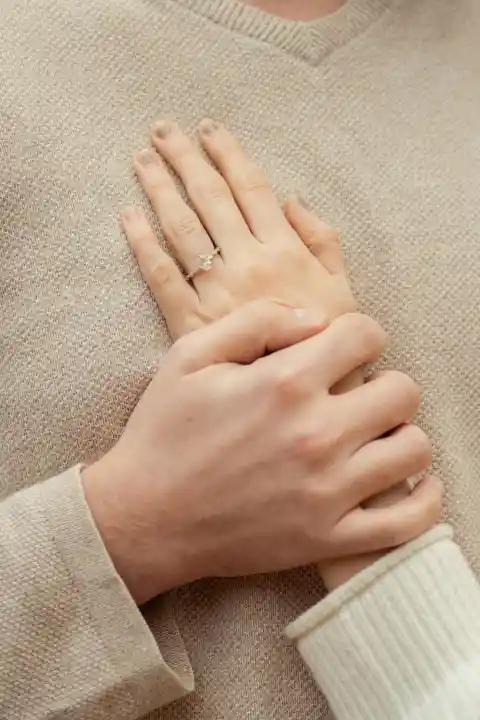
“I’ve never even heard of this guy!” “What are you thinking?” When Julia couldn’t come up with a response and stayed silent, even her closest friend snapped, “That’s disgusting.” Julia wanted to defend herself, to explain—but the words wouldn’t come. Deep down, she knew that revealing her true reason might lead to something far worse than judgment. And that fear kept her quiet.
The Price of Her Choice
Choosing to marry someone old and ailing seemed unthinkable to most. That’s the question lingering in everyone’s thoughts. Convinced there was no love involved, they quickly branded Julia as nothing more than a “gold digger.”


Julia knew she had acted impulsively. But the more the situation spiraled, the more she felt it was too late to undo it. She feared losing her friends, her family distancing themselves, and even the risk of jeopardizing her job as a teacher. Yet, in spite of everything she stood to lose, she went through with the marriage—for one specific reason she couldn’t ignore.
Suspicion and Solitude
The backlash from the town was far more intense than Julia had anticipated. Neighbors who once greeted her warmly now avoided her, and her friends completely severed ties. On top of that, Harold’s family and acquaintances saw her as a threat. To them, it was only logical to question, “Why would a young, attractive woman choose to be with a man so old?”
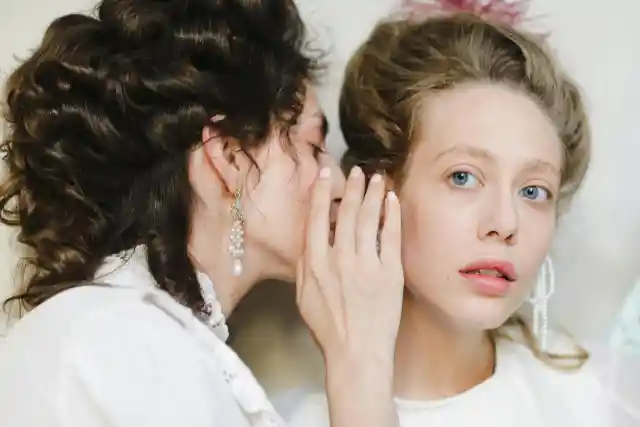

Julia had no significant wealth of her own, while Harold possessed considerable assets. From the outside, it clearly looked like a marriage driven by money. As a result, she became more and more isolated, facing judgment from the townspeople and disdain from Harold’s family.
The False Assumption That She’s Only After Wealth
When Harold presented Julia to his circle as the woman he intended to spend his life with, it left everyone stunned. His sister Violet went as far as accusing Julia of being a "gold digger" and harshly criticized her clothes and looks.
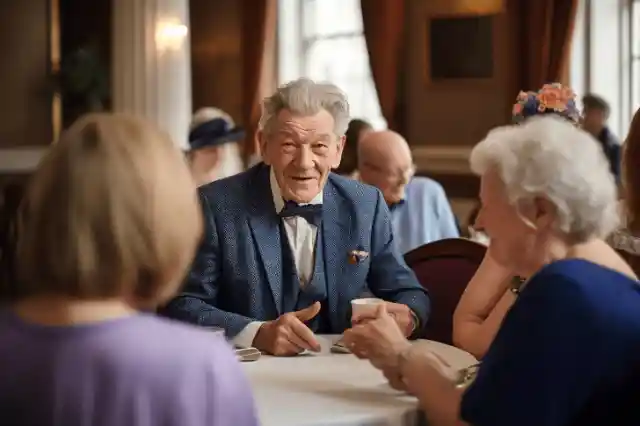

Julia found herself in a dreadful position. People stared at her as if she were tainted. Rather than accepting the marriage, the atmosphere was hostile—almost as if they were determined to prevent it at all costs.
Steadfast Resolve Amidst Uncertainty
Harold was the sole person who stood firm, unwavering in his decision to marry Julia despite the criticism surrounding them. Meanwhile, Julia wrestled with anxiety and doubt. Had she made a mistake? Was his affection genuine, or was he truly just after her money?
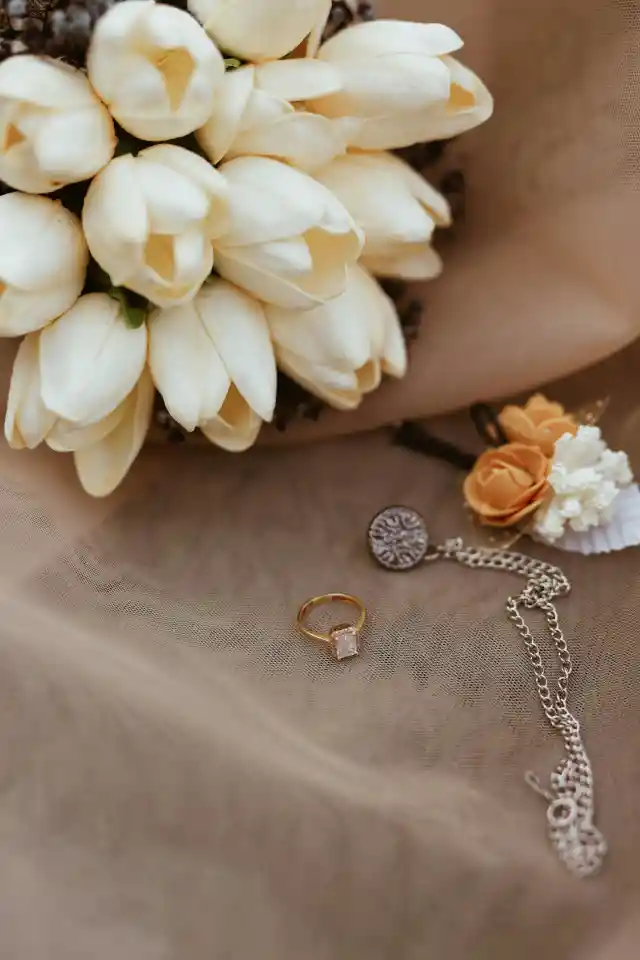

Yet, backing out was no longer an option. With her reputation tarnished and friends abandoned, she couldn’t afford to lose the “certain reward” that marrying Harold promised. Silently, Julia began making preparations for the wedding.
Solitary Wedding Preparations
Harold’s frail health weighed heavily on their minds, especially given his age. If the wedding didn’t happen while he was still well enough, Julia’s plans would fall apart. She took charge alone—hiring a wedding planner, selecting the venue, arranging catering, and trying on dresses by herself. When the shop clerk asked, “Will someone be joining you?” she reluctantly replied, “I want to keep it a surprise.”
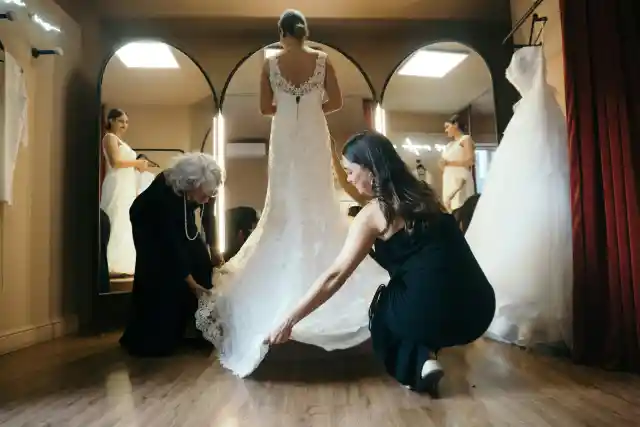

Everyone—even her own parents—felt ashamed of the marriage and distanced themselves from Julia. She was removed from her close friends’ group chat and left to face everything completely alone.
An Emotionless Union Entangled in Deception
If a friend told Julia they were marrying someone 37 years older, she would have tried to stop them—so she understood why people reacted the way they did to her own situation. She wasn’t in love with Harold either. Maybe if he had been 10 or 20 years younger, she might have felt affection, but in their current marriage, there was no genuine love.
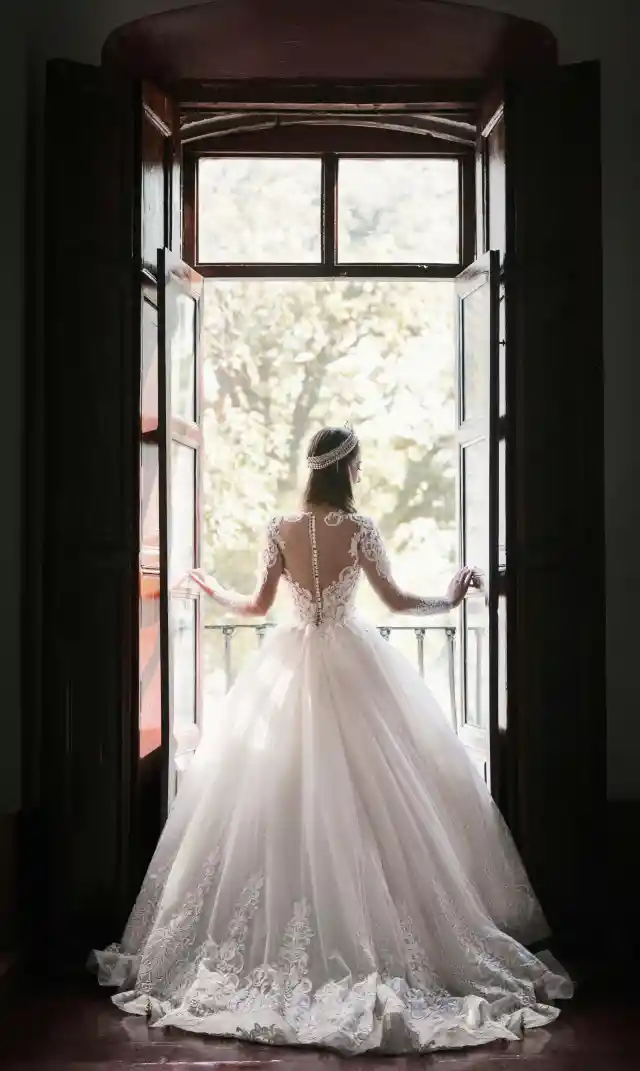
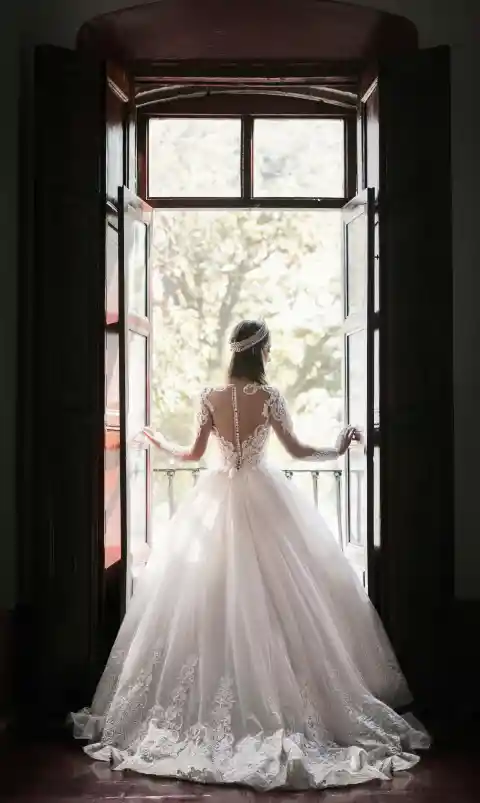
Julia was fully aware that she was merely "using" Harold. Yet, with his age and declining health, time was running out. She feared that if she revealed the truth, someone might interfere. Holding onto this thought, she pressed forward with the marriage—one built entirely on deception.
A Life-Changing Meeting and Startling Confession
Julia first crossed paths with Harold one morning at school. That same day, she was abruptly summoned by the principal, who delivered shocking news without warning, leaving her stunned and at a loss for words.


Shortly after, Julia went back to the classroom and informed the twins, Billy and Lucy, that their grandfather would be coming to take them home early. The children were thrilled, unaware of the grim reality behind the sudden change—the arrival of a devastating tragedy.
Startling News and Shifting Fates
The principal’s news was devastating: the twins’ parents had died in a car accident. Julia’s heart sank, knowing the shock the young children were about to endure. As time went on, Billy and Lucy started missing more school days, and their once-bright smiles gradually faded away.
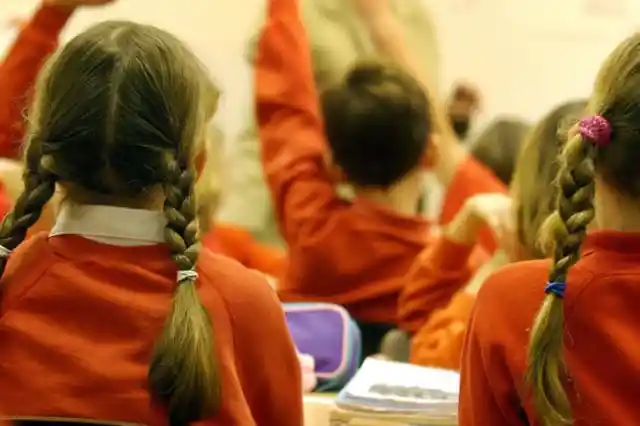
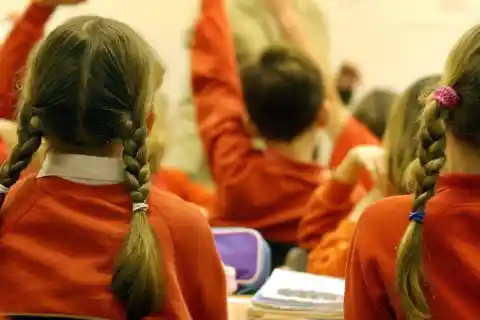
To help them keep up with their studies, Julia offered the twins one-on-one tutoring after school, doing everything she could to support them. Over time, she discovered that their grandfather was Harold, sparking a connection between her and the elderly man.
The Twins’ Grief and Julia’s Vow
When the twins came back to school, the light of innocence in their eyes had nearly faded. Wanting to restore some of their strength, Julia chose to stay after class and assist them with their lessons.
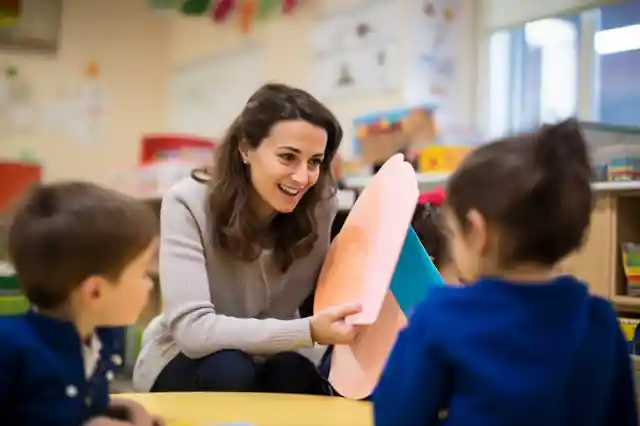

I may not be able to heal all their pain, but I want to support them as much as possible as their teacher. That was Julia’s heartfelt decision, though she never imagined that this choice would ultimately transform her life in such a profound way.
Connection with Harold and the Twins’ Tomorrow
As Julia cared for Billy and Lucy, she found herself spending more time with Harold—an intelligent, wealthy man who, above all, showed genuine kindness and deep affection for his grandchildren.


With their parents gone, the twins have only Harold left as family. Although they live in his spacious home with plenty of everything they need, Harold’s advanced age makes the future uncertain. Julia becomes deeply aware of this reality.
The Astonishing Mansion and the Twins' Tale
One afternoon after school, since Harold was unavailable, Julia brought the twins to his mansion. The children had mentioned, "There’s a massive pool!" but seeing the mansion firsthand, Julia found it even more extravagant than she had pictured.
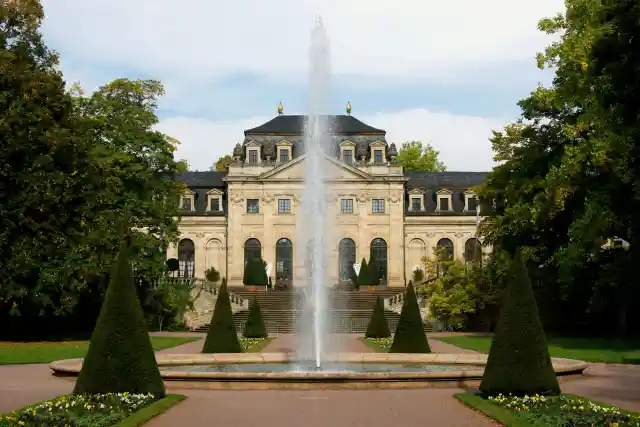

Julia couldn’t hold back a surprised, “Wow...” which made the twins laugh softly. She felt as if they belonged to a world entirely separate from hers. Little did she know then that she would eventually find herself “living here.”
Tensions and Preparations Before the Wedding
In the lead-up to the wedding, Julia started spending more time at Harold’s residence. The expansive rooms and elegant furnishings were impressive, yet a sense of unease weighed on her heart. Was proceeding with the marriage truly the right choice? Still, given Harold’s fragile health, delaying wasn’t an option. Most importantly, she had a compelling “reason” to move forward.


To ensure the wedding appeared genuine, Julia put great care into selecting the dress and perfecting her makeup. Yet, deep down, she kept thinking, “Once the ceremony is done, everything will be over.”
Walking Down the Aisle Alone
On the wedding day, as the planner signals that the moment is near, Julia makes her way down the aisle alone, with no family or friends by her side. Those watching can’t help but view the sorrowful sight with a mix of curiosity and pity.


As the ceremony started, Julia felt lightheaded, nearly on the verge of fainting. The stares from the crowd pierced her deeply. It felt as though she was an outsider, watching someone else live a completely separate life. Still, she pressed on, moving directly toward Harold.
A Solitary Promise and a Fresh Identity
What should have been a joyous wedding ceremony instead felt somber and distant. Seeing Harold, Julia was struck by a sudden awareness of his loneliness, and her heart ached. “He must have longed for someone’s love. Yet, there is no love here,” she whispered to herself as she recited her vows.
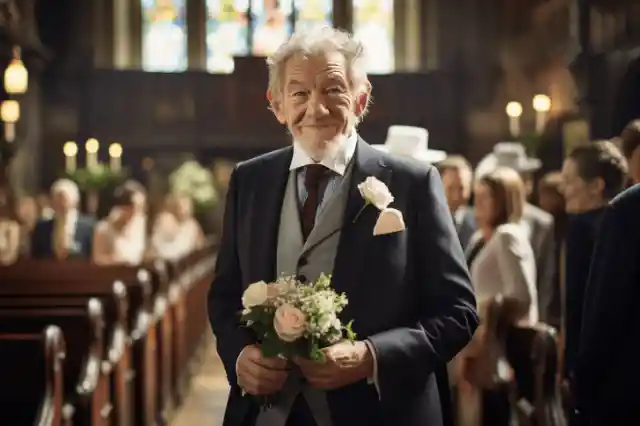
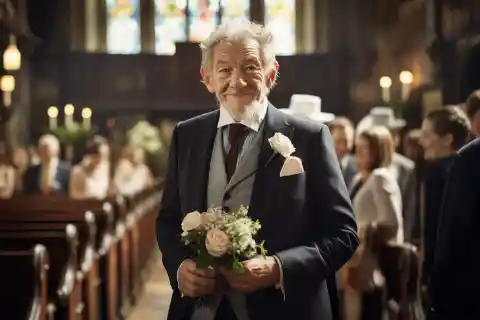
Following the ceremony, she became “Mrs. Williams.” Yet, the reality of marriage—something she had envisioned—felt oddly hollow and distant.
Alone Yet Connected
That evening, Julia entered the mansion carrying a swirl of emotions: the lavish lifestyle was something she had long wished for, and she was able to stay close to the children, yet the local townspeople were growing more vocal in labeling her a “gold digger.”
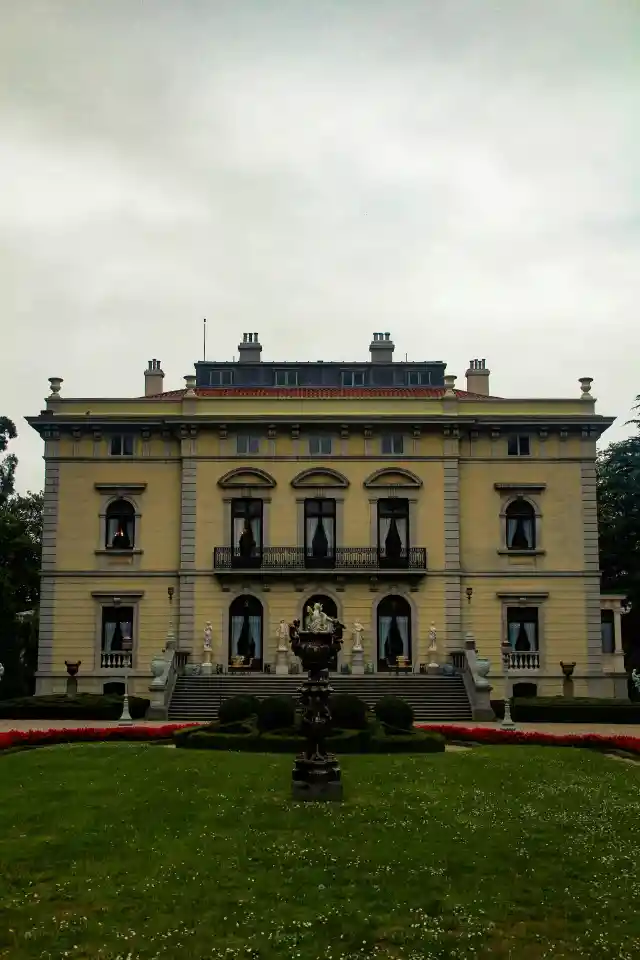
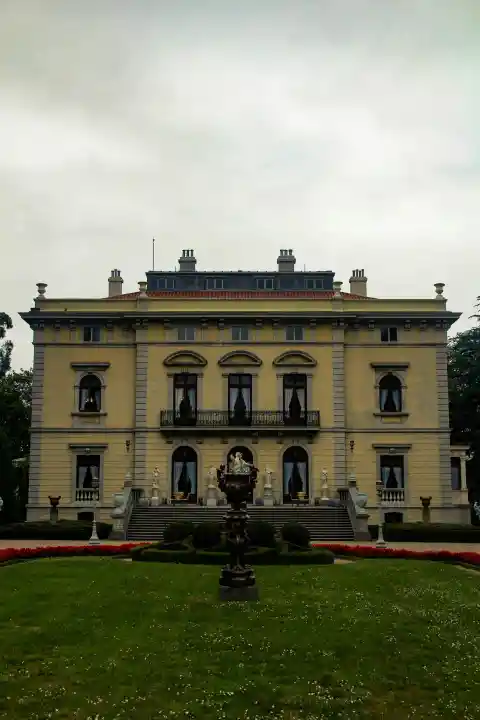
At the same time, the twins Lucy and Billy are also struggling with loneliness. Their worry that losing both their parents and grandfather would leave them utterly alone is clear. Sensing that their sorrow mirrors her own feelings of isolation, Julia starts spending more time with the children.
False Assumptions and a Solitary Struggle
The town’s rumors intensified, with whispers like, “She purposely picked a frail elderly man,” and “She’s after a massive inheritance once Harold passes.” Julia faced harsh criticism both online and in local circles, and each attack left her deeply wounded.
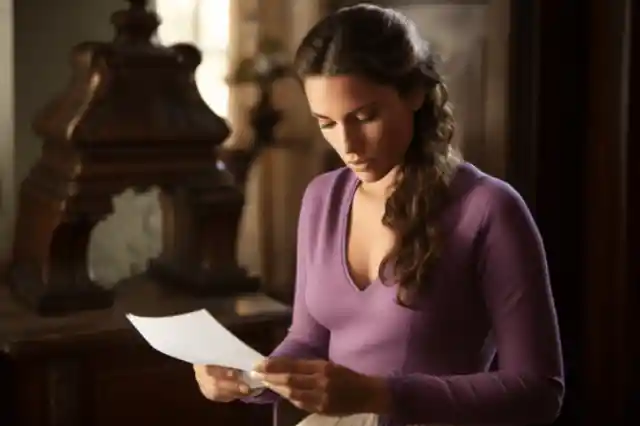
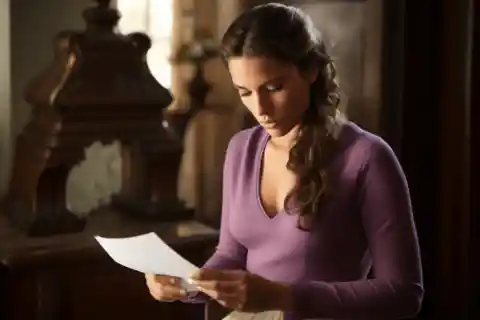
Despite everything, Julia stayed strong for her children, reminding herself that safeguarding them was her highest priority and that one day, she would reveal the truth to them.
In care and bonding
As Harold’s health swiftly declines, Julia’s position shifts from wife to caregiver. This change sparks criticism, with many accusing her of exploiting the situation to secure his inheritance through appearances.
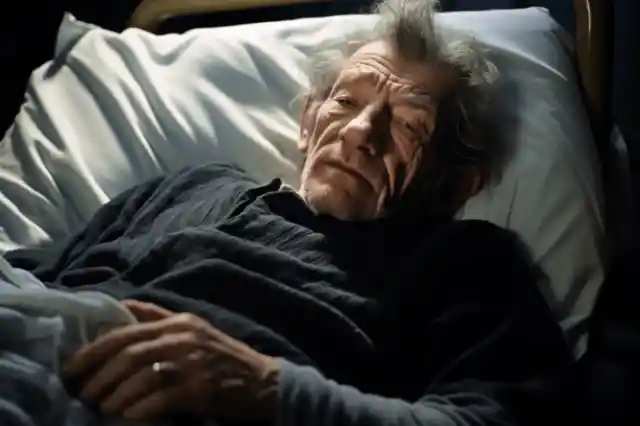

Nonetheless, Julia teamed up with Lucy and Billy to care for Harold, sharing tender moments together at home. Despite the town’s harsh judgment, as long as the children’s smiles came back, that was all that mattered. This belief kept Julia going.
Loss and the Community’s Verdict
One day, Harold passed away quietly, his departure sudden and chilling like a cold winter breeze. At the funeral, Julia was overwhelmed with shock. Though it wasn’t love, an unusual bond of friendship had grown between her and Harold. Most importantly, the twins—already grieving their parents—had now lost their closest family once more.
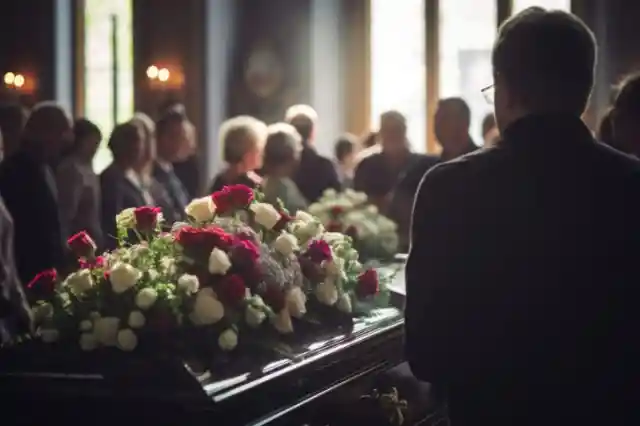
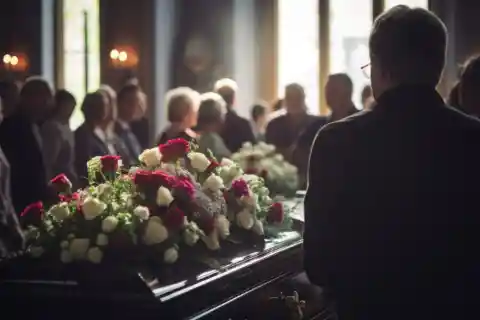
This realization weighed heavily on Julia’s heart. Meanwhile, the townsfolk grew even colder toward her. “This is exactly what they intended,” murmurs filled the funeral hall, alongside sympathetic words for the twins and whispers branding Julia as an “evil stepmother.”
Inheritance and the Community’s Grudge
When Harold’s will was revealed, it declared that all of his assets would go to Julia. The town erupted in outrage, and the backlash against her grew even more intense. Before she could properly grieve his passing, Julia found herself under a storm of vicious accusations.


“That woman was after money all along,” “She’ll probably trick the twins next”—such harsh words spread quickly, leaving Julia deeply hurt. Yet, her main concern remains the well-being of the children, who have lost both their parents and now their grandfather. Resolving to shield them from further pain, Julia chooses to become their guardian and stand by their side.
A Season of Recovery and Resolve
With Harold gone, a somber atmosphere settles over the mansion. Yet, Julia and the twins lean on one another, determined to keep going. Amid their grief and uncertainty, the three begin to find comfort and a sense of peace in their shared bond.
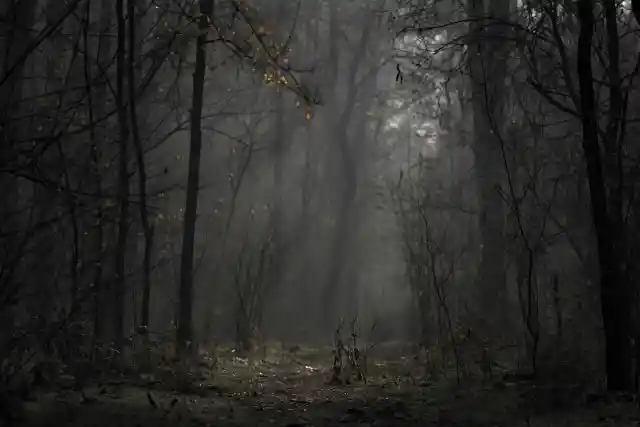

Still, the town’s harsh judgment shows no sign of easing. Julia realizes it’s time to speak up—there’s no longer any reason to stay silent. For the sake of the children she now calls her own, she decides to finally reveal the truth.
The Town Hall Revelation
Julia organizes a gathering at the Town Hall, drawing a crowd of curious and gossip-hungry townspeople—many arriving not to listen, but to sneer and mock.
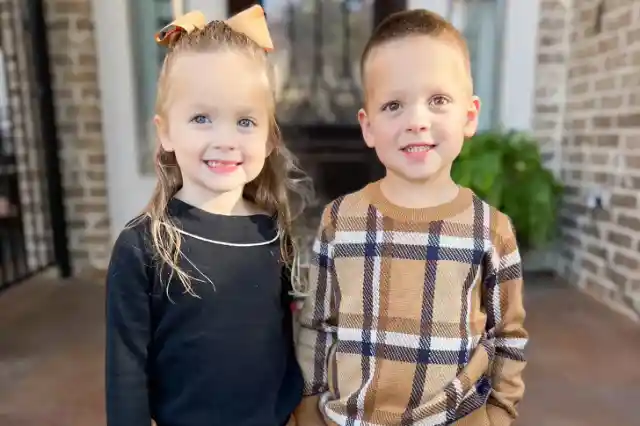
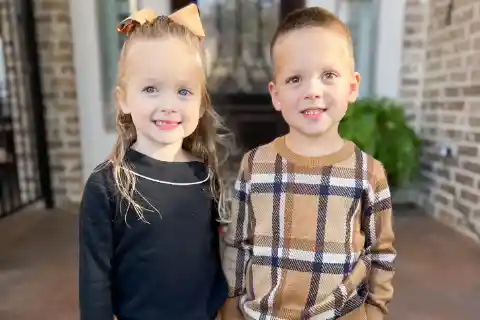
Standing on the stage, Julia took a deep breath and began, “I’ve called you all here today to finally share the truth about my marriage to Harold—something I’ve kept hidden until now.” A tense blend of curiosity and resentment filled the air, as hushed murmurs rippled through the crowd.
True confession
“I didn’t marry Harold for love or money,” Julia stated firmly, prompting a wave of murmurs to sweep through the hall. Suspicious eyes turned toward her, doubting every word. “My lawyer will explain everything,” she continued, stepping aside as the attorney beside her moved forward to speak.


“The first thing I want to share is the existence of a letter Harold wrote shortly before his passing,” the lawyer said, his voice calm yet unmistakably clear.
Unveiling the Truth
The lawyer unfolded Harold’s handwritten letter and began to read aloud: The twins had lost their parents in a tragic accident, and with Harold as their only remaining family, he knew his time was limited. Fearing that Billy and Lucy would be left with no one and sent to an orphanage, Julia—moved by compassion—offered to marry him so she could legally become their guardian and ensure they stayed together.
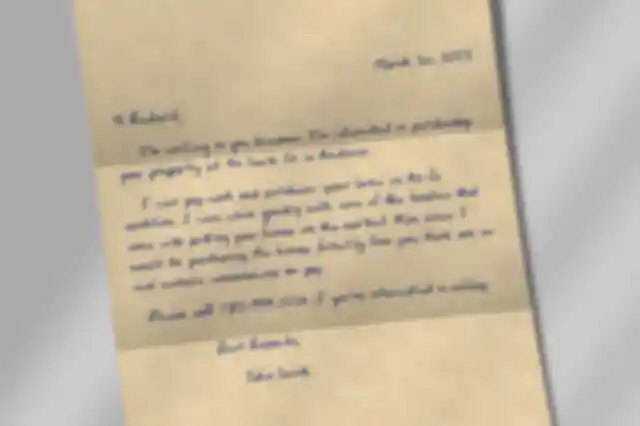
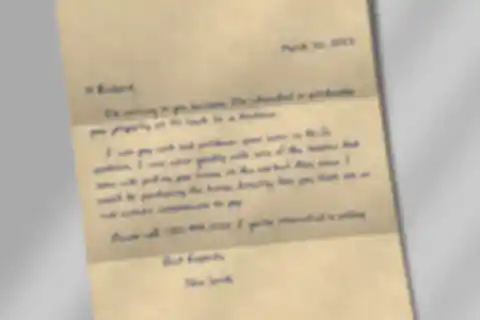
“This proposal was the greatest gift I could have ever received,” Harold had written. “She wanted to ensure my grandchildren would have a safe, stable life after I was gone. Julia knew the backlash she’d face because of my age, yet she still chose to do it.” He went on to praise her selflessness and devotion, explaining that this was why he decided to leave all his assets in her care.
Harold’s Letter and the Honest Truth
As the lawyer finished reading, a heavy silence filled the town hall. The crowd sat stunned, unable to speak—confronted with a truth far different from the assumptions they had clung to. No one had imagined that the woman they had so harshly judged had, in fact, given up everything to protect the twins.
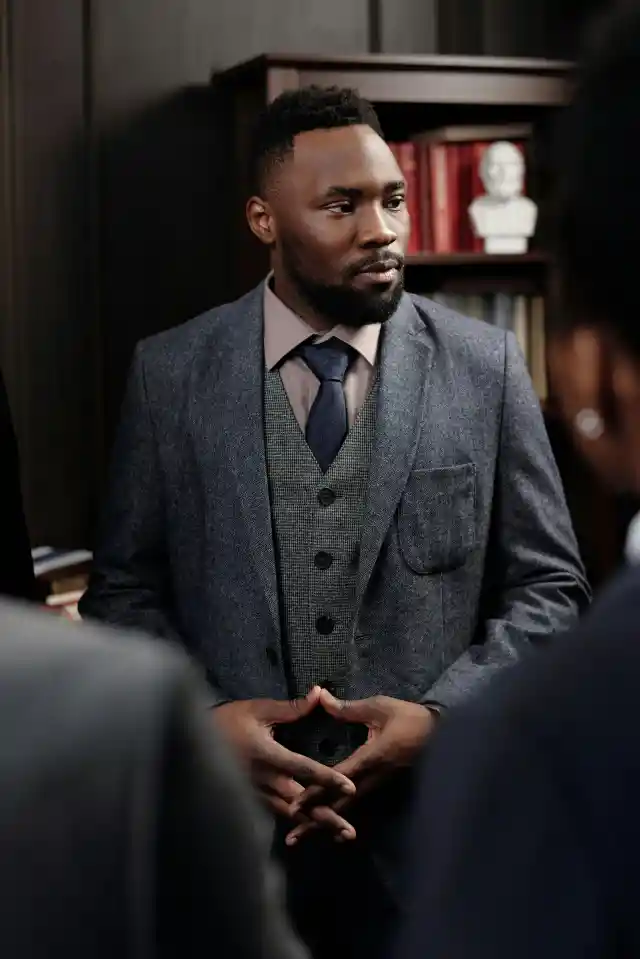
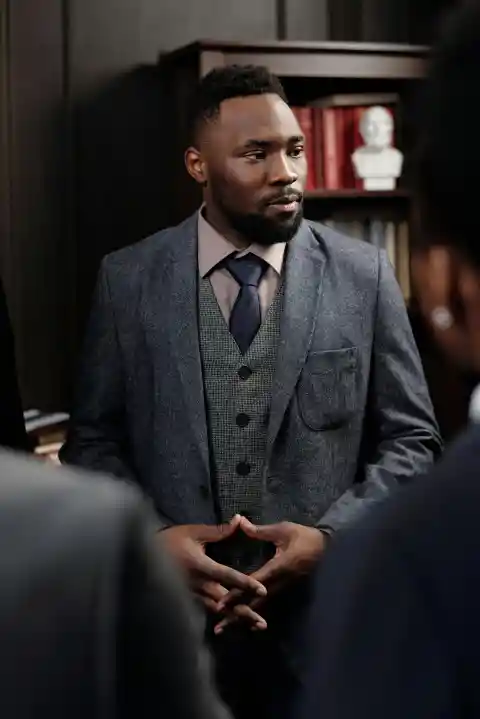
“We couldn’t speak about this while Harold was alive,” Julia explained. “We feared that revealing the truth earlier might lead to misunderstandings driven by hidden agendas.” Her words initially caused confusion, but over time, the crowd’s shock gave way to a growing sense of remorse.
Harold’s Choice and the Untold Truth
Harold’s letter openly conveyed his profound love for his grandchildren and his appreciation for Julia’s bravery and compassion. He believed that the only way to ensure a peaceful life for the children after his passing was by entrusting his fortune to Julia.
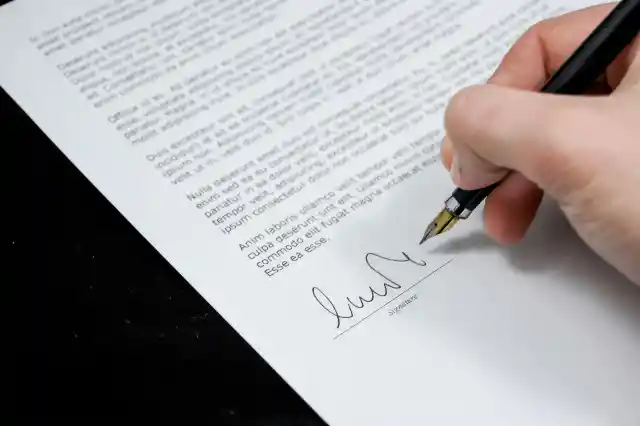

This sincere motive behind what appeared to be an unusual marriage surprised many and left them feeling both shocked and regretful for having wrongly judged Julia as the villain.
The truth is revealed and the town's spirit begins to change
Following a long, solemn silence in the Town Hall, whispers started to spread. Several who had previously spoken harshly lowered their heads in shame and expressed their apologies.
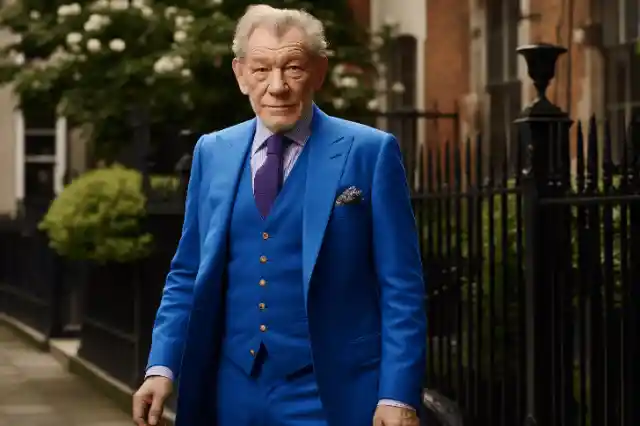

With tears in her eyes, Julia admitted that many of the friends and acquaintances who had slandered and ridiculed her now regretted not reaching out to her. She felt sorrowful for bearing her suffering alone, wishing she had spoken up sooner—even if it was to shield the twins.
Truthful confessions and new bonds
Later, Julia revealed the truth to Billy and Lucy. Though initially stunned, the twins embraced her with tearful eyes, likely comforted by the knowledge that they now had another grown-up looking out for them.
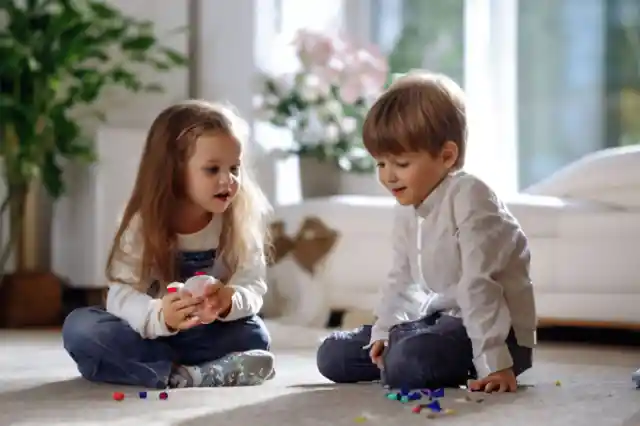
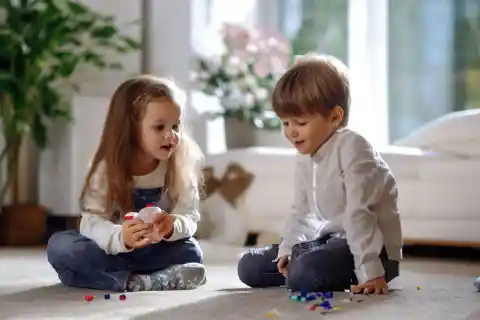
The connection they had formed grew even stronger and deeper after sharing the hidden truth. For the children who had lost their parents, Julia transformed from merely a "teacher" into a cherished guardian.
A Time of Recovery and Renewal
Harold’s mansion has since transformed into a true “home” for Julia, Billy, and Lucy. The townspeople’s attitudes have slowly shifted, and the harsh criticism and gossip have begun to fade.


With time, the children’s smiles reappear, Julia ventures outside free from prejudice, and she starts to feel a sense of relief as old friends work to mend the broken ties between them.
A Fresh Start and a Glimmer of Hope
Late at night, once the children are asleep, Julia gazes quietly across the expansive living room, feeling a deep sense of peace. She never imagined that the marriage she had entered into with all her heart would ultimately give her a true “family” like this.
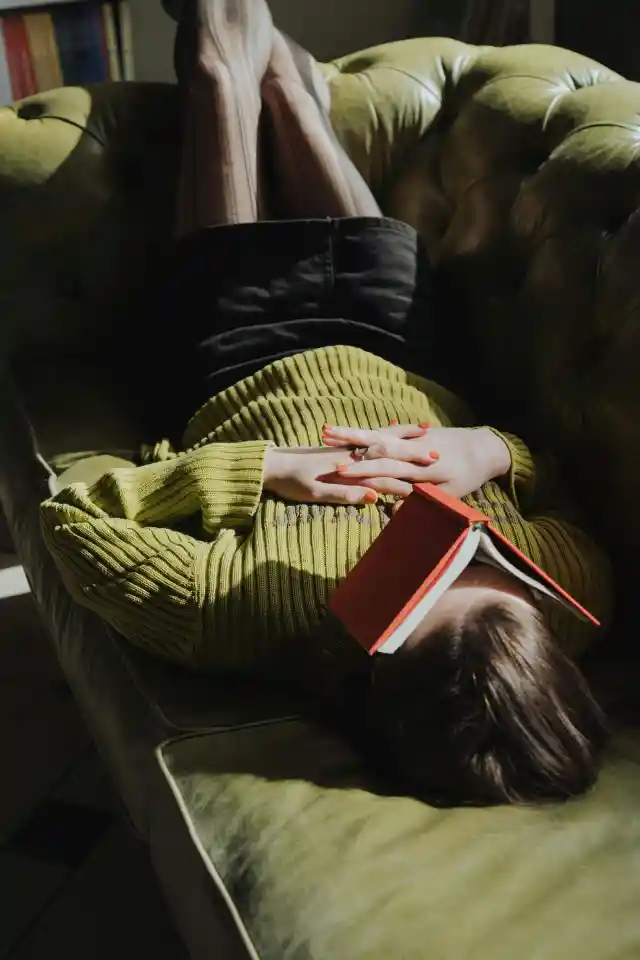
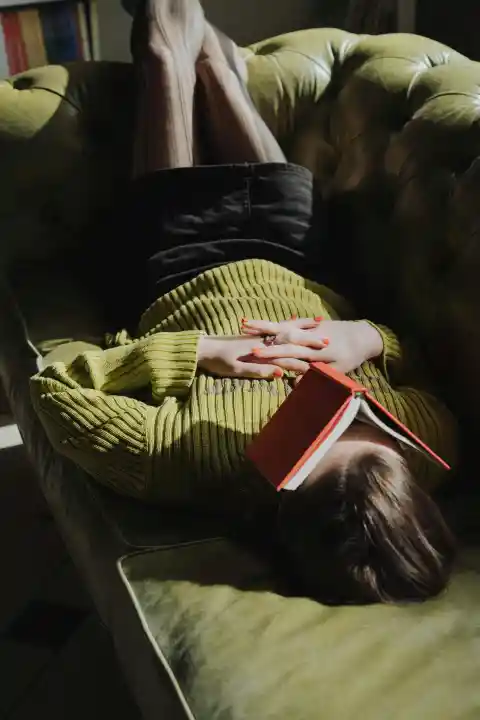
Harold’s legacy was more than just his wealth. He gave Julia, who had been lonely, and Billy and Lucy, who had lost their parents, a home where they could rely on one another. Meanwhile, shifts were taking place in the town. Some of the once cold-hearted residents were moved by Julia’s actions and began to show greater compassion. The upheaval that shook the small town revealed the genuine emotions of its people—feelings that couldn’t be judged by gossip or assumptions—and from this, a fresh ray of hope started to emerge.